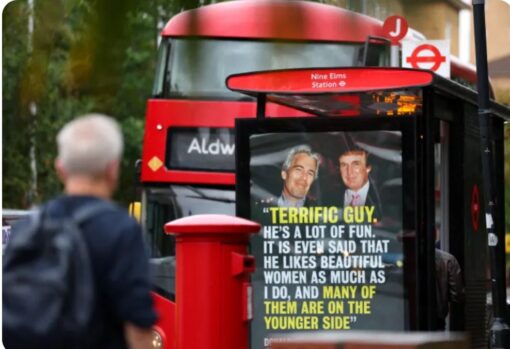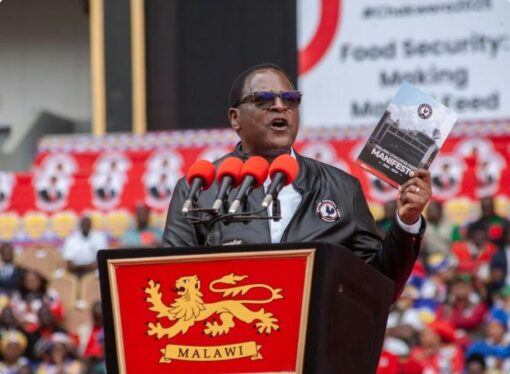Russia no choice but war was the uncompromising declaration from the Kremlin after United States President Donald Trump abruptly reversed course on Ukraine, branding Moscow a “paper tiger” and claiming Kyiv could eventually win back all its territory.
The dramatic turn triggered alarm across Europe, where governments already fear that the conflict could spill over into NATO airspace.
Kremlin spokesperson Dmitry Peskov said Russia had no alternative but to press on with the war “for the present and future of our country.” Speaking to a radio, he dismissed Trump’s new stance as misguided and rejected the idea that Ukraine had any realistic chance of reclaiming occupied land.
His remarks came just a day after Trump met Ukrainian President Volodymyr Zelenskyy on the sidelines of the UN General Assembly, pledging that Washington would support Kyiv in what he called a winnable fight.
For Moscow, the turnaround was particularly bitter. Only weeks ago Trump had welcomed Russian President Vladimir Putin to a summit in Alaska, where the two leaders attempted to rebuild a relationship badly strained by war and sanctions.

That effort, which the Kremlin now says produced “close to zero” results, has been replaced by sharp rhetoric. Trump declared Russia’s three-and-a-half-year offensive a failure, insisting that a “Real Military Power” would have ended the war in less than a week.
Peskov responded by mocking the “paper tiger” description, saying Russia was better understood as a “bear” capable of enduring hardship.
He conceded that the economy faced headwinds, with inflation and slowing growth, but insisted the sacrifices were necessary to secure national interests.
Russia has announced plans to raise VAT from 20 to 22 percent to finance defence spending, a move that economists say will reduce growth to around one percent this year, down from over four percent in 2024.
The Kremlin’s message of Russia no choice but war has become central to its strategy. Officials argue that the conflict is existential and cannot be abandoned without risking the country’s sovereignty.
State media has echoed this narrative, portraying Trump’s remarks as proof that Washington is driving the war while painting Ukraine as a proxy for Western ambitions.
Ukraine, meanwhile, is seizing on the shift in tone. Zelenskyy hailed Trump’s comments as a turning point, telling reporters in New York that international unity could now “break Russia’s illusion of inevitability.”
Ukrainian forces have stepped up long-range strikes, hitting oil and gas infrastructure deep inside Russian territory. This week, drones attacked a Gazprom petrochemical plant in Bashkortostan and a port facility in Novorossiisk, causing fires and killing at least two people. Kyiv argues such strikes expose Russia’s vulnerability and challenge its claims of strength.
In Europe, Trump’s U-turn on Ukraine is being studied with a mix of relief and concern. Relief because the US president is again aligning with NATO allies after months of uncertainty, and concern because of the unpredictable swings in Washington’s foreign policy.
European leaders have repeatedly stressed the need for consistency, fearing that wavering US support could weaken deterrence against Russia. NATO this week warned Moscow against further airspace violations after Estonia and Poland reported incursions by Russian jets and drones.
Spain’s defence ministry added to those worries by revealing that a plane carrying Defence Minister Margarita Robles experienced GPS interference near Kaliningrad.
A similar incident last month affected the aircraft of European Commission President Ursula von der Leyen, which authorities believe was targeted by Russian jamming. Such provocations have heightened fears that Moscow is testing NATO’s resolve while escalating its hybrid warfare tactics.
Trump’s declaration that Ukraine can win back “all of Ukraine in its original form” was intended to project confidence, but it has also raised expectations in Kyiv.
Some European diplomats privately caution that such sweeping promises could be difficult to deliver, especially as Ukraine continues to struggle with manpower shortages and battlefield attrition.
Still, the symbolic impact of the US president dismissing Russia as a paper tiger cannot be underestimated, particularly for a Kremlin that has long prided itself on military prowess.
For ordinary Russians, the cost of the war is mounting. Beyond higher taxes and inflation, reports of rising casualties are filtering back from the front lines.
Families face economic strain while also being told that the country has no choice but war, a message designed to frame hardship as patriotic sacrifice. Critics abroad argue this rhetoric is meant to mask Russia’s strategic failures, but inside the country it reinforces a sense of siege and resilience.
Ukraine, too, continues to suffer heavily. Civilian casualties from Russian bombardments remain high, and drone attacks on infrastructure have brought blackouts to cities far from the front.
In Crimea, a recent Ukrainian strike damaged a school in Foros, showing how the war is touching communities on both sides of the conflict. The battle lines may appear frozen, but the human toll is escalating.

Internationally, the Kremlin’s insistence that Russia no choice but war is viewed as both a justification and a threat. By declaring the conflict unavoidable, Moscow signals it has no interest in serious negotiations.
At the same time, Trump’s reversal highlights how volatile US policy can be, leaving allies to question how durable Washington’s new stance will prove. In Beijing, officials have avoided commenting on the shift, though analysts say China may see opportunity in Russia’s growing isolation.
As the war drags into its fourth year, there is little sign of resolution. Ukraine is intensifying strikes, Russia is raising taxes to fund the fight, NATO is on high alert, and the United States is once again pledging support for Kyiv.
The declaration of Russia no choice but war encapsulates the grim reality: both sides are digging in, and the world is bracing for a wider conflict that shows no sign of ending soon.


